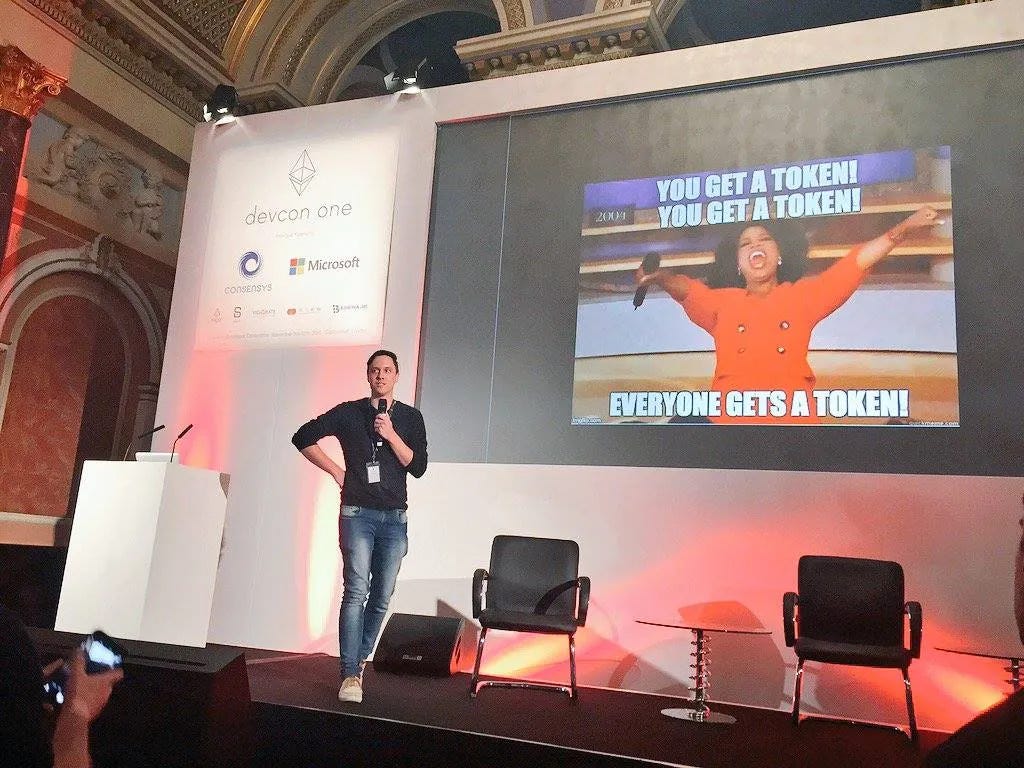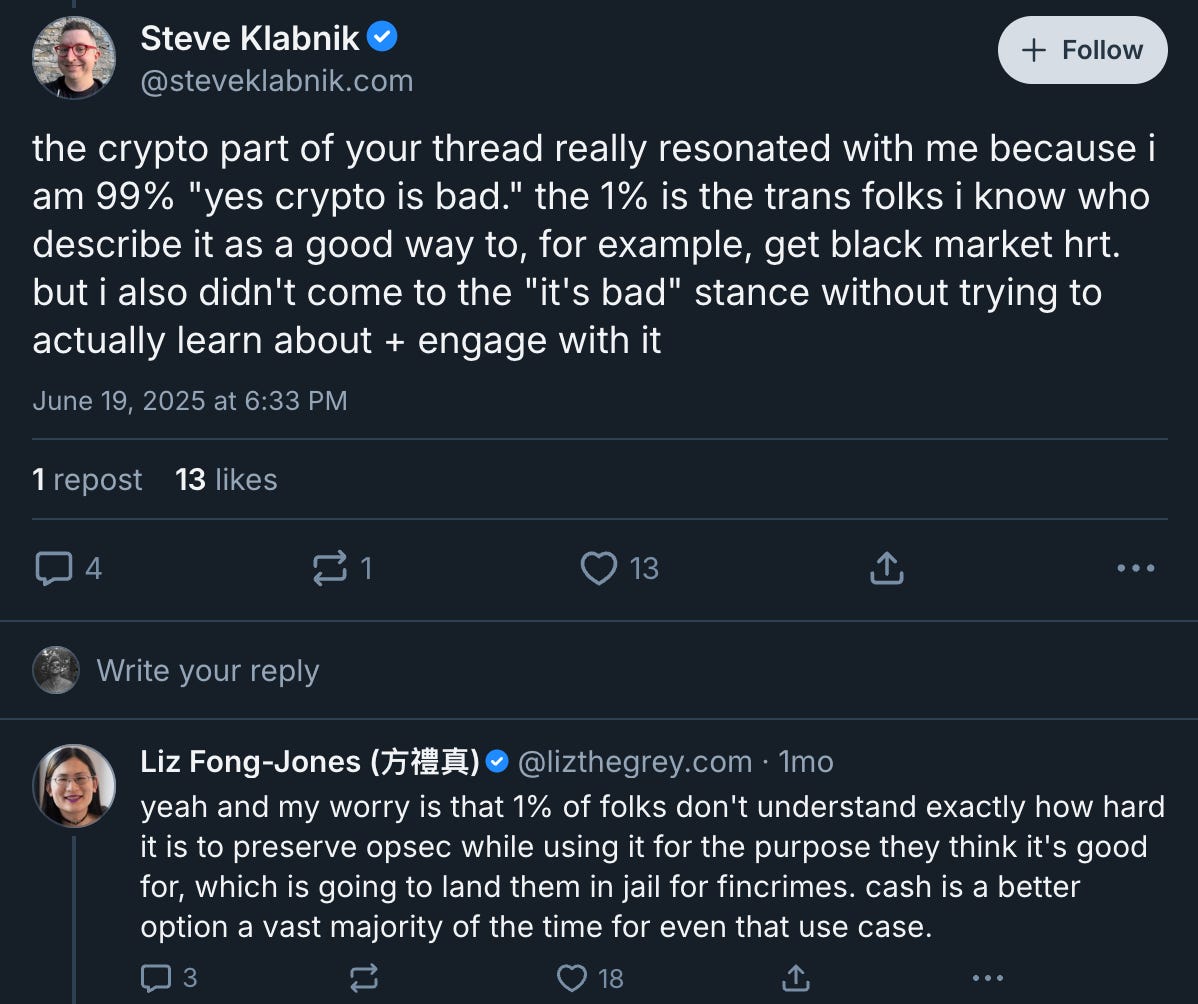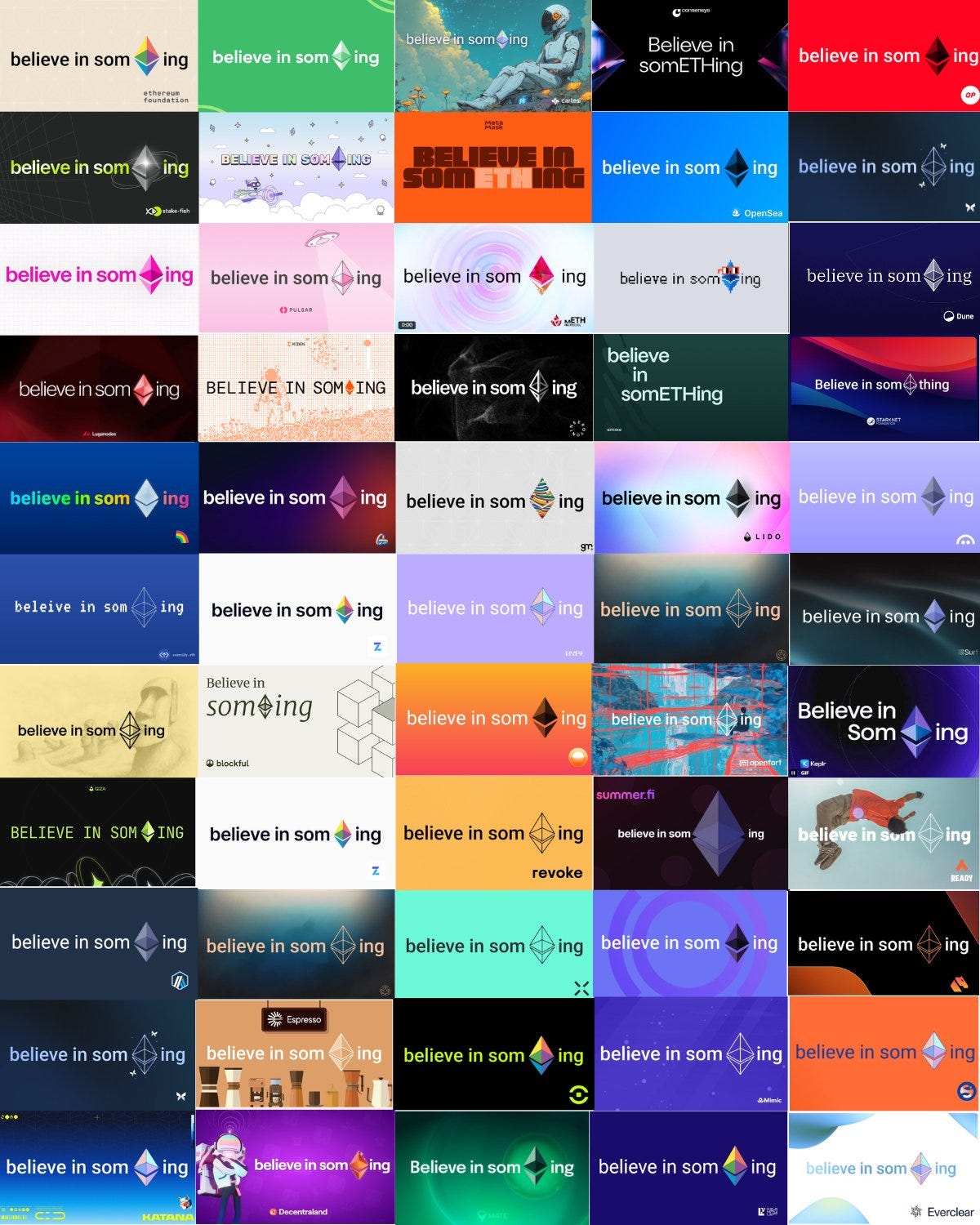A (Sober) Reflection on a Decade of Ethereum
It's not just about protocols. Nothing is inevitable.
10 years ago, I celebrated the launch of Ethereum with a whiskey and a view of Table Mountain in the background.
At that point, I had already been tinkering with smart contract code for 7 months, trying to get AlethZero to interface with a local Ethereum node. Fast forward 10 years and it’s irrevocably changed the world for good and bad. When I read back on my thoughts on blockchain systems from 2014, it all centered on building protocols that enable new kinds of coordination.
From personal coins, to reputation systems, to art.
The potential this has is immense. I’m especially looking forward to working on decentralized reputation systems (so you could hopefully tap it more easily into systems such as OpenBazaar), and again working on personal coins.
But, that’s probably just low hanging fruit with Ethereum. I’m so so excited about what will happen, and what will be created. Here’s even a basic experiment in defining art with a dash of behavioural economics in a contract (by Rhea Myers): Because why not?
My work on co-designing the ERC20 standard came from a belief that when we can create currencies easily, we’ll see more ways for people to connect and build their own networks of value.
Because (soon) anyone can create a currency that is instantly global and more to secure to counterfeiting than any other form of money we’ve seen. And when this happens, people will have free choice to affiliate their monetary value to any community they wish.
When you are faced with an option to use equally secure forms of money with equal monetary value, you are going to use the one that speaks to you: that represents the ideas you want to affiliate with. For example: let’s say there is a currency for death-metal fans & a currency for jazz fans. If you had the option to (without financial risk*) to use one that speaks to you (jazz), you’ll use that one. It becomes a vote for that community. It is the glue & lifeblood that builds a foundation for those networks of value.
At devcon1, later in 2015, I gave a talk on tokens (which included a joke about gerbils!)
And well, that future came to pass very much so. In fact, most of the new token launchpads also all include economic primities that I helped design and popularise (token bonding curves).
It all became far bigger than I anticipated and with it also a lot of complex emotions. My belief in the coordinative ability of the technology also gave way to mass amount of casinos, scams, and it’s hard to not feel a knot in one’s stomach when you see that stuff you helped design caused someone to commit suicide. Or the fact that the most powerful person in the world runs a practically overt pay-to-play memecoin that opens unfettered doors for corruption.
To this day, there remains a tension between the power of building open protocols and what it enables others to do. If there’s one mantra I ascribe to (ht Ed Snowden), it’s transparency for the powerful and privacy for the powerless. And depending where you sit, you will see it differently. For example, in the face of pressure recently to its payment processors, itch.io had to deindex NSFW content that also included queer content.
There’s also concern that this deindexing event will have a disproportionate impact on queer creators, and in the immediate aftermath there has been confusion about the distinction between “NSFW” and “adult” content, with a lot of LGBTQ+ stories and games falling under the umbrella of the former. “My SFW sci-fi comic that’s no worse than a standard Marvel movie also got deindexed... but it had the LGBT tag,” wrote Yuki Clarke, a comic artist, on Bluesky.
Who gets to have a say where money flows to? Who should we allow to have that say?
Even if your opinion of crypto is “it’s all bad”, also consider the value of using it to bypass life-saving medicine to the trans community? It’s never clear when a community will become the next target of censorship, exclusion, and oppression.
And Liz is correct here. The powerful hate privacy and if you’re using crypto for buying medicine, you *need* good opsec.
When you design protocols, especially one that enables many kinds of protocols, you’re opening it up to be used for good and bad and depending your beliefs, you’re likely inclined to see more good or more bad.
To me, Ethereum was never supposed to *replace* other forms of coordination: civic societies, communities, states, UN, etc all co-exist alongside the Internet, p2p networks, and blockchain ledgers. It’s alternative systems that provides both access and a check on powers that be. But, the worst outcome is if a blockchain becomes the everything-coordination-engine, when it’s entirely unfettered and co-opted by the powerful as the *only* way to coordinate. In tandem with existing coordination systems, commons management tools, it shines. It should be helpful irregardless of who is in power.
The real challenge for Ethereum in the decade ahead is to ensure that it retains its independence while traditional coordination systems (like legislatures or civic societies) keep the worst tendencies of blockchains in check.
Maybe in the past I might have imagined that the blockchain itself could be this system of self-regulation, but in order to see if that’s true, it might take too long to know. By that time, we could be under the yoke of a system that will be far harder to change than merely voting every 4 or 5 years.
After devcon1, I wrote:
If we allow people to become more empowered stakeholders in the public works we build for each other, the more empowered we all become. Gone will be the days of the disenfranchised. Gone are the days of fear of technological unemployment. Shared infrastructure means deeper empathy. A computing commons that empowers new stakeholders around the world, resulting in a global “$50 startup”, can bring this future to fruition. Ethereum will serve to be this backbone. An interconnected mesh of information, empowerment & deeper shared responsibility from which we can all gain from.
This vision had not come to pass in the way I had hoped and I’m less certain of its inevitability unless we also rely on people, *not* just protocols. In some sense, I’ve become more maximalist in both directions: we need stronger tools, systems, and protocols with cypherpunk values while not letting humanity off the hook. When people oppress other people, access to censorship-resistant money and privacy tools for the powerless can mean survival. But, damn, humans, the fact that we always have to get there is an indictment on our capacity to simply, be better.
For Ethereum’s decade, the decentralized slogan “believe in som-eth-ing” was trotted out.
If there’s anything I believe in for the next decade, is that we need these systems in the face of rising authoritarianism, and I *also* believe in humanity. I’m not just putting my faith in technology and protocols. There’s a lot more work to do. I’m not so naive anymore in its inevitability. It’s all shaped by you and me. Ethereum should not just be a casino. Ethereum should just not be used by Presidents who make memecoins with it. Ethereum should not just be a pay-to-play grifting engine.
Ethereum is a transglobal fraternity of multivariant stakeholders ignited by a rich array of cultural imaginaries, themselves ultimately bound together by the ineliminable core of cypherpunk values.
It’s also for art. For plurality. For open finance. For censorship-resistance. For global coordination. For access. For self-expression. For open platforms. For shared access to wealth.
But, it’s not guaranteed. See you in 10 years. 🙏





